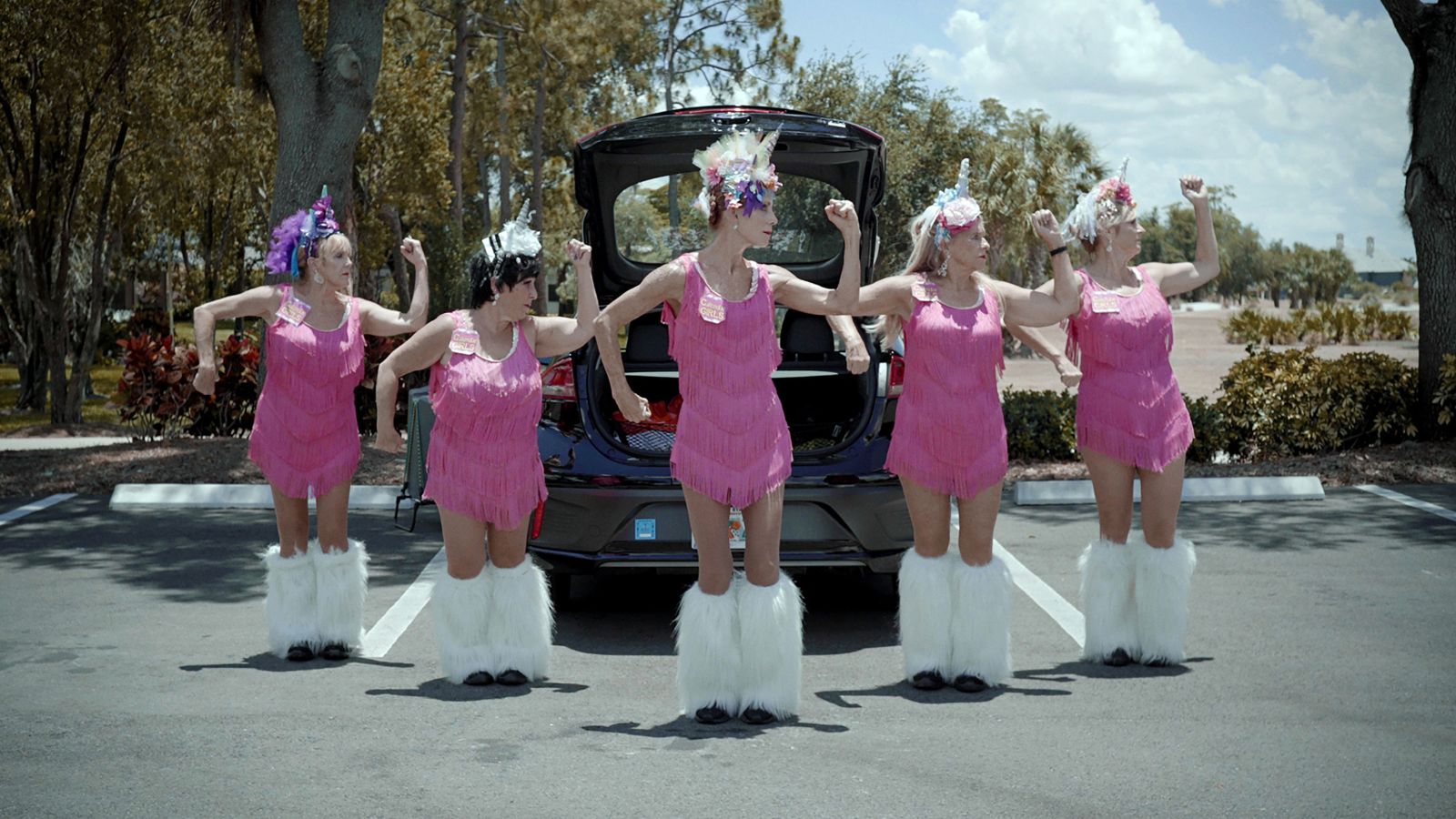Let’s get one thing straight: no one just casually becomes a member of the Calendar Girls, Southwestern Florida’s premier geriatric dance troupe. As founder and steam-engine leader Katherine emphasizes, the charity-based collective of women over 60 takes itself seriously, rehearsing half the year in order to perform the other half. And between the homemade unicorn headdresses, sequined leotards, and electric-blue eye makeup, some husbands just can’t handle their wives having fun.
This is the delicate balance that directors Maria Loohufvud and Love Martinsen strike in their skillful, dedicated documentary Calendar Girls. The Swedish duo celebrates their subjects with ebullient visuals one might expect from a film about a group of old ladies dancing their socks off, while gaining intimate enough access to witness the frustrations of aging. Though only going deep with select members of the group, the documentary manages to treat every Calendar Girl with the dignity of an artist dedicated to their craft. This sincere-but-playful tone is helped in large part by the use of choreographed interpretive dance sequences that the directors worked with the troupe to stage. These are far more genuinely expressive than the routines performed for rotary clubs, holiday parades, and church brunches.
Among the members of the troupe that do get spotlights are a former vice cop whose total change of identity is motivated and now hindered by her deteriorating health; a formerly incarcerated Korean War veteran whose friend sent her the group’s fundraising calendars and letters while in prison; a younger single grandmother entirely new to performing; and the Girls’ main costumer, a mother of three whose husband fought her joining the troupe “every step of the way.” With each of their interviews, it’s clear that though it may not be held in high regard by their spouses and children, this is what the women live for.
It would be easy to evaluate the film as a feel-good, fluffy and inspirational tale about aging gracefully as a white, often well-off Floridian, but thanks to its access, the conversation goes deeper than that. Amid health failures and kids leaving the nest, the women ask themselves what their purpose is: are they even allowed to enjoy something out of pure passion, not duty or obligation? For some, their families provide the answer. When grandmother Patti is needed to care for her new granddaughter, she drops everything without question, despite her obvious newfound joy in performing and the camaraderie that comes with it.
In one particularly upsetting case of an emotionally-disintegrating marriage, costumer Fran details how her husband calls her lazy even though she loves doing the time-consuming work of designing and creating the troupe’s headpieces, and the documentarians ride along with her when she begrudgingly leaves Florida for a good part of the year for her husband’s winter home. Sitting in the living room with Fran and her husband is a viscerally skin-crawling experience, underscoring the boxes older women get shoved into when they’re not doing exactly what’s expected of them.
Duty extends even into death, with one of the frankest conversations between several of the women probing the topic of suicide, and the gendered expectations of how one might kill herself to leave the smallest possible cleanup. It’s a maudlin topic broached with good humor and honesty, and the filmmakers break it up with another expressive dance sequence, setting their subjects free in a more metaphorical manner.
Above all, the film shows what an emotional catalyst the Calendar Girls are for everyone who participates. This fantasia in sparkles and patriotic leotards is a phenomenon worthy of ethnographic study, and though it doesn’t dig too deeply into its subjects beliefs, the film is a highly watchable, admiring snapshot of girls who just want to have fun.
Calendar Girls premiered at the 2022 Sundance Film Festival.

